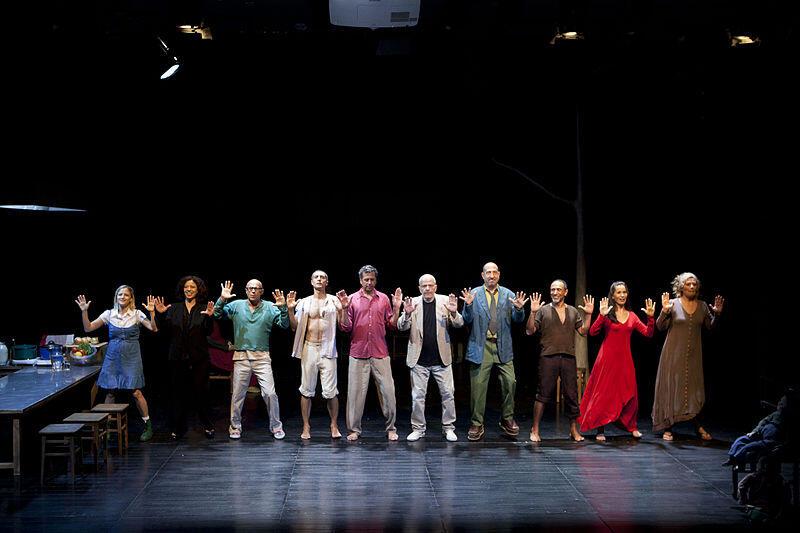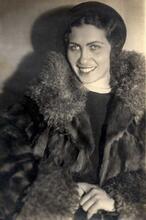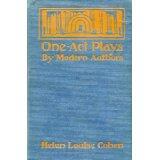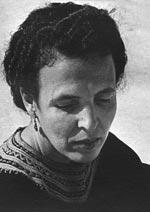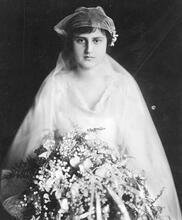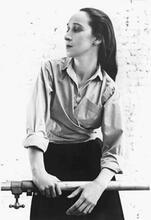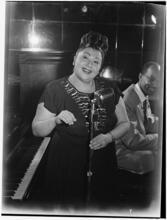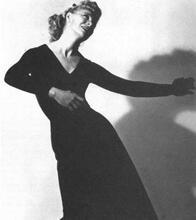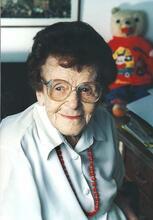Ofira Henig
Ofira Henig is one of Israel's most prolific and influential theater directors. Henig began her career at the Habimah before becoming the artistic director of the Khan Theater in Jerusalem. Henig formed a permanent repertory group of actors at the Khan, and her production of Chekhov’s The Seagull there won her an Israel Theater Prize. Many of the plays that Henig directed have a woman as the focus of the action: Ha-ha by Jennifer Dawson (1996), Princess Ivona by Witold Gombrowi,cz (1997) and The Maid of Ludomir by Josepha Even-Shoshan (1997). In 2002 Henig was appointed to the prestigious position of artistic director of drama and dance at the Jerusalem International Festival. In 2004 she was appointed director of The Laboratory, a new experimental theater in Jerusalem.
Early Life and Family
Ofira Henig was born in March 1960, on A voluntary collective community, mainly agricultural, in which there is no private wealth and which is responsible for all the needs of its members and their families.Kibbutz Ruhama. Her father, Nathan (Nånoor) Hönig, born in Muncacs, Czechoslovakia in 1929, was an administrator who, together with his wife Bessie (née Schauffer, b. 1928 in Meml, Lithuania), a rhythmics teacher, arrived in Palestine in 1945 from Switzerland. The couple had two older children: a son Amitai (Kfir), born in 1950, and a daughter, Nadia (Laufer), born in 1955. When Ofira was two years old the family moved to Holon, where she completed her schooling at the Mitrani Municipal High School. After serving in the paramilitary Nahal from 1979 to 1981, she spent two years traveling in Europe. Her encounter with European theater led her to pursue studies in the development of drama at the Kibbutz Seminar, from which she graduated in 1986. Her first ventures into directing were Equus by Peter Schaeffer (1989) and Martin Sherman’s Bent (1990), both of which were performed at the Beit Zvi school of acting in Ramat Gan, headed by Gershon Bilu. Equus won first prize at the international festival of student productions in Moscow, while Bent was invited to appear at an international festival in Leningrad in 1990. As a result of these successes, Henig was invited to teach at the Gittis Theater Academy in Moscow. In 1992 she directed Claude Debussy’s The Lost Son at the Moscow Opera.
Career as a Director
Unlike most of Israel’s young directors, Henig never worked in fringe theaters but began her career in the country’s establishment. Although in this context directing was considered primarily a male occupation, her career developed rapidly and steadily. Her Beit Zvi successes led Omri Nitzan, the artistic director of Habimah, to engage her to direct Zahav (Gold) by Yossef Bar-Yossef in 1989. She served as house-director and a member of the artistic council at Habimah from 1991 to 1993, during which time she directed Yehoshua Sobol’s The Night of the Twenty (1990), Tennessee Williams’s The Glass Menagerie (1991), The Lower Depths by Maxim Gorky (1992), Creditors by August Strindberg 1993), and Euripides’s Hippolytus (1993), as well as other plays, such as Pony and Anton by Erich Kästner (1991). When, in 1996, she was asked why she was choosing to leave so highly rated a position, she replied “Because I felt stuck”—a response that typified her professional integrity.
After two years of freelancing that included Williams’s Summer and Smoke and Educating Rita, by Willy Russell, at the Beersheba Municipal Theater, Henig became artistic director of the Khan Theater in Jerusalem, forgoing a scholarship for two years of study in the United States, which she had been awarded by the America-Israel Cultural Foundation.
Henig, who was the Khan Theater’s eighth artistic director, turned it into one of Israel’s best. Perceiving herself as the director of a company of actors, rather than as an artistic director, she formed a permanent repertory group who worked only at the Khan, refrained from collaborating on co-productions with establishment theater and created a varied and challenging repertoire which never gave in to the dictates of the market and marketing.
Women in Henig’s Plays
Dawson (1996), Princess Ivona by Witold Gombrowicz (1997), and The Maid of Ludomir by Josepha Even-Shoshan (1997). In Anna Galactea, a play that raises profound questions regarding the relationship between the state and the arts, Jetta Monte played the part of the Venetian painter who refuses to collaborate with the authorities by portraying the city’s military victory over the Turks. Monta’s outstanding acting, the brilliant manner in which the décor maximally utilized the arches and stone walls of the Khan (which was formerly an Ottoman hostelry), the period costumes, the stage tableaux that recalled well-known paintings of the period and the company’s ensemble work all combined to create an impressive aesthetic experience. Jetta Monte was awarded the title of Actor of the Year and drew critical attention to Henig’s work at the Khan. Under her direction, the members of the company evoked superlatives, both as an ensemble and as individuals. One example of this was Gili Ben-Ozilio, in two successive roles: Princess Ivona, a silent and mysterious figure, and Hannah Rachel, the Maid of Ludomir, an eighteenth-century woman who headed her own rabbinic “court” until the rabbinical establishment defeated her. Henig’s excellent direction brought artistic and critical recognition to the young dramatist, Yosefa Even-Shoshan. Indeed, the production was typical of Henig’s choice of a repertoire that could advance young beginning artists and encourage artistic experimentation. A further example was Michael Gurevitch’s A Passing Shadow (1999), which began as a concept rather than a written text and gradually took shape in the rehearsal room with the collective contribution of the actors’ improvisations. An enormous success, the production proved without a doubt that Henig had developed a company with outstanding creative ability.
Late 1990s and Early 2000s
Because her success had aroused high expectations, her next undertaking, Shamayim (Heaven) by Gilad Evron, a co-production of the Khan and the Jerusalem Theater (which does not mount its own productions), evoked extreme responses. Ironically, the play deals with the issue of “rating” in the theater: a director is asked to find a topic for a production that will attract audiences. The subscribers of the Jerusalem Theater, who are accustomed to seeing the successes of the Tel Aviv theaters, were unacquainted with the complex theatrical idiom of Henig’s productions and “voted with their feet.” The play ran for only six performances, evoking Henig’s emotional response: “I feels as though I’d given birth to a dead child” (Haaretz, May 7, 1999). But even failure contributes to Henig’s approach, leading her to remain faithful to working on challenging plays. Her production of Chekhov’s The Seagull at the Khan won her the Israel Theater Prize in the category of Classical Theater. The words of Konstantin before he commits suicide—“I’ve discovered that new forms are not the most important things. What counts is whether we have something to say, and whether or not it pours forth from the soul”—may be said to characterize Henig’s next productions: The Return to the Desert by Jean-Marie Coltez (Khan 2001) and Jean Genet’s The Screens (Habimah, 2002).
Both of these plays have as the background to their action the war in Algeria and its impact on French society. Both of them mark not only Henig’s social and political commitment but also her determination to express that commitment by means of plays that are artistically challenging and not necessarily original works by local dramatists. The Return to the Desert won the 2001 Play of the Year award of the Israel Theater Prize and also earned Henig the title of Director of the Year. As a production mounted at Israel’s National Theater, Habimah, The Screens, was understandably controversial. At one point in the play, Hadijah, the old Arab woman (played by Liat Goren) expresses what an Arab mother says to herself from the depths of suicidal despair and hatred as she dispatches the young men of the village to become murderers. Later, she demands that they describe what they have committed in the name of evil and they present her with the descriptions of the horrors as though they were bringing her gift-offerings. The way in which Habimah’s subscribers received The Screens was totally different from the reception of The Return to the Desert—proving the importance of building up audience expectations among regular subscribers. Henig’s great achievement at the Khan was that the number of subscribers increased significantly despite the fact that its productions were not easily digestible.
Recent Career Accomplishments
In 2002 Henig was appointed to the prestigious position of artistic director of drama and dance at the Jerusalem International Festival. However, during the two years that followed, the festival was beset by innumerable problems arising from the outbreak of the second intifada. During her first year in office, most of the overseas participants canceled their appearance only a short while before the festival was due to open, and even in the year that followed, Israel was not an inviting spot for foreign artists. But despite the difficulties, Henig successfully evolved an up-to-date artistic approach that presented the audiences with interdisciplinary and multicultural performances, the content of some of which dealt, however indirectly, with social and political issues relevant to life in Israel.
In 2004 Henig was appointed director of The Laboratory, a new experimental theater in Jerusalem, succeeding Oded Kotler, another well-known innovator in Israeli theater. Unlike him, she intends to make this a place for collaboration between Jewish and Arab authors. Her first production was Oscar Wilde’s Salome, featuring an ethnically mixed group of actors. It is reasonable to suppose that The Laboratory will allow Henig to continue giving artistic expression to the socio-political agenda in which she so firmly believes, as well as to her conception of theater as an interdisciplinary art. Her acceptance of her new position in a non-establishment framework is not only an indication of the long way she has come since her beginnings in the establishment but also—and perhaps primarily—proof that she is a woman of the theater who is constantly searching and researching and who, above all, is totally committed to the art of theater.
The Israel Center for Documentation of Theater Arts. Tel Aviv University. Archive File 115.5.9.

